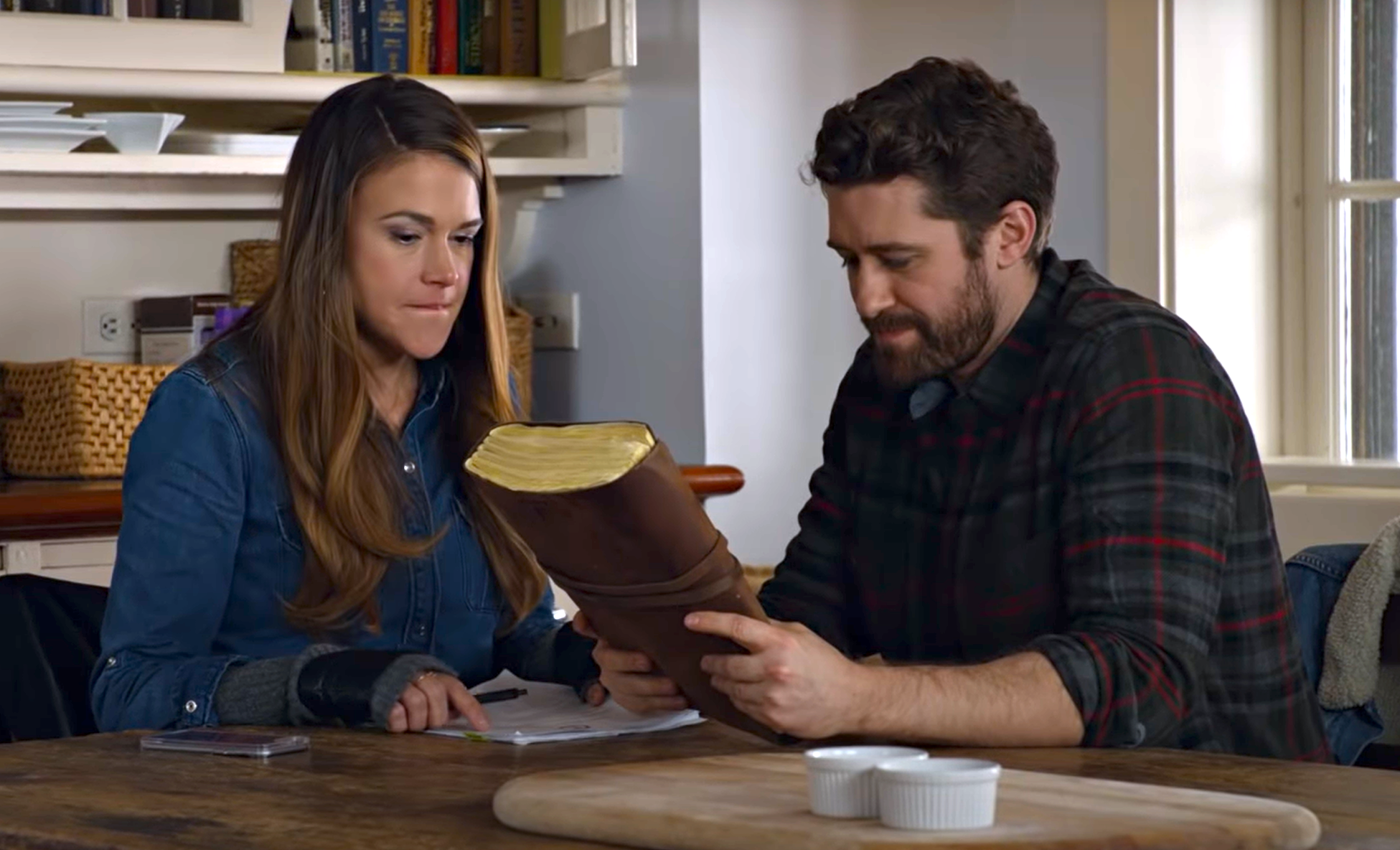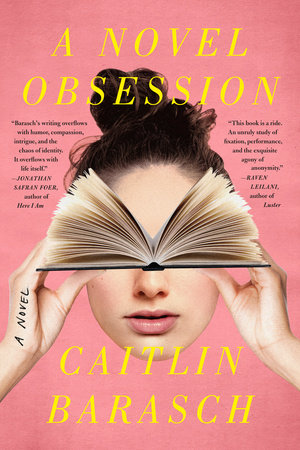Reading Lists
7 Novels Set in the Literary World
Caitlin Barasch, author of "A Novel Obsession," recommends books about writers, editors, and translators

At the risk of seeming obnoxiously obsessed with ourselves, writers and readers do tend to love books about writers and readers—especially when those fictional writers and readers behave badly. (It’s no wonder, really, why the Bad Art Friend discourse hit a nerve; so many people were frantic with empathetic outrage or gleeful schadenfreude.)
In my debut novel, A Novel Obsession, Naomi is an aspiring novelist and indie bookseller cultivating an obsession with her boyfriend’s ex-girlfriend, Rosemary, who just so happens to also be an editor at a major publisher. As her obsession escalates, Naomi uses their shared love of books to insert herself into Rosemary’s life—and, naturally, to use her as fodder for fiction——with inevitably disastrous consequences. (Bad Art Friends, indeed.)
If you, too, are fascinated by ruthlessly ambitious writer-types, I’ve compiled a list of books set at least partly in the literary world, featuring characters who will do whatever it takes—to find love, to get ahead (or to simply survive) in the industry, to make good art, and/or to lead a more novelistic life. Enjoy the voyeurism!
Last Resort by Andrew Lipstein
Caleb Horowitz, the 27-year-old narrator, is on the brink of achieving his wildest dreams—a life-changing book deal for his novel—when Avi Deitsch, an old college rival and the novel’s inspiration, gets his hands on it. Caleb is then forced to make a Faustian bargain, one that tests his theories of success, ambition, and the limits of art. The book is an often hilarious and ironic skewering of the literary world, and no one is spared.
The Other Black Girl by Zakiya Dalila Harris
This book was the talk of the town last year, and for good reason! Just after 26-year-old editorial assistant Nella Rogers, tired of being the only Black employee at Wagner Books, welcomes Harlem-born and bred Hazel to the cubicle beside hers, a string of uncomfortable events occur. As Nella starts to spiral over the sinister forces at play, she soon realizes that there’s a lot more at stake than just her career. In a brilliant critique of the publishing world’s dark side, The Other Black Girl is a dynamic thriller and a sly social commentary chockfull of twists and turns.
Must Love Books by Shauna Robinson
Nora Hughes—an overworked and underpaid editorial assistant at Parson Press—decides to moonlight for a rival publisher to make ends meet…and maybe poach some Parsons’ authors along the way. But when Andrew Santos, a bestselling Parsons author no one can afford to lose is thrown into the mix, Nora has to decide where her loyalties lie. This book is both a compelling love story and a wise, honest journey of self-actualization.
Faces in the Crowd by Valeria Luiselli
Gripping, immersive, and haunting, Luiselli’s poetic debut follows a young mother in Mexico City attempting to write a novel about her experience working as a translator of a small indie press in New York. There’s a thrilling metafictional blur of fact and fiction as she attempts to piece together her past. Artistic obsession reigns supreme!
Book Lovers by Emily Henry
This list wouldn’t be complete without another literary romp from Emily Henry. In Book Lovers, our heroine, Nora, is a cutthroat literary agent who, according to Taylor Jenkins Reid, is a “fierce heroine who does not apologize for her ambition.” (Yes, please.) Because Nora spends all her time and energy focused on her clients, her beloved younger sister Libby convinces Nora to take a sisters’ trip together to North Carolina as a well-earned break from the demanding job. But then, of course, the publishing world catches up with her in the form of Charlie, a brooding editor from the city. As they continue encountering each other in a series of cheeky coincidences, what they discover might just unravel the carefully crafted stories they’ve written about themselves.
The Plot by Jean Hanff Korelitz
Nearly a year after its publication, this book already feels like a canonical example of Writers Behaving Badly. Jacob Finch Bonner, our antihero, was once a promising young novelist but now struggles to write, let alone publish, anything decent. So after one of his students, Evan Parker, details the wildly compelling plot of the novel he’s working on—and then unexpectedly dies—Jacob steals the plot and writes the book himself. Literary fame quickly follows until, at the height of his successful new life, a terrifying and mysterious e-mail arrives, threatening to expose the source of his inspiration and upend his career. The twisty chaos that follows will blow your mind, as it did mine. Because my debut novel also features an ambitious (and desperate) novelist determined to write a book at all costs, I frequently found myself squirming in recognition while reading The Plot, which is truly the highest form of praise.
Trust Exercise by Susan Choi
So, hear me out: even though this book is largely set at a performing arts school, it also involves an absolutely explosive and thrilling novel-within-a-novel, thus earning it a spot on this list. In the second part of the book, when readers learn that the first part was actually an excerpt from the novel-within-the-novel, it challenges our preconceived notions—not only of the characters we’ve come to know, but also our perception of the ambiguous responsibilities a writer has to their subject, as well as the slippery nature of fiction, truth, and memory. Katy Waldman, in the incisive New Yorker piece “Who Owns a Story,” writes:
“the act of consuming fiction is itself a trust exercise, and Choi highlights how outrageous the novel is as a proposition: a transient agreement that one enters into with an author to pretend that bald fantasy is reality. Her book underscores our trust by breaking it.”
The book, then, ultimately becomes a story about storytelling.









